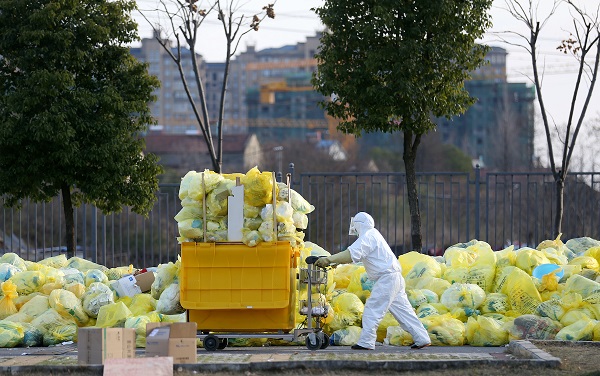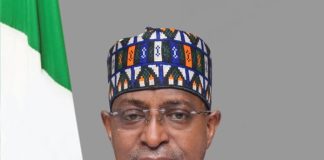
Stakeholders have emphasised the need for a coordinated and proactive approach to managing outbreak risk communication in Nigeria, particularly focusing on Lassa fever, cholera, Mpox and other health threats amidst rising challenges.
During the reopening meeting of the National Risk Communication Technical Working Group (NRCTWG) on Friday in Abuja, leading public health experts shared crucial insights into managing these high-risk infectious diseases.
Incident manager of the National Lassa Fever Emergency Operations Centre (EOC) at the Nigeria Centre for Disease Control (NCDC), Dr. Yetunde Abioye highlighted the importance of early detection and robust data collection in preventing widespread outbreaks.
While Lassa fever remains a major concern, Abioye acknowledged that effective surveillance systems have successfully contained many potential outbreaks.
“We must expand our surveillance network to ensure early case detection, especially in endemic regions. Community awareness and engagement are equally critical, particularly in farming communities where the disease is most prevalent,” she said.
National cholera surveillance lead at the NCDC, Mr. Iliya Cheshi provided a comprehensive update on the cholera outbreak for 2024, noting that it affected 36 states, resulting in over 24,000 suspected cases and 726 reported deaths.
Cheshi attributed the outbreak to worsening conditions in water, sanitation and hygiene (WASH) and called for substantial investment in water and sanitation infrastructure.
“Cholera is preventable, but the factors fueling its spread – poor hygiene practices, open defecation, and inadequate water supply – are deeply entrenched. We must prioritise public education and community-level interventions,” he stated.
He also outlined the government’s efforts, which include vaccination campaigns and the establishment of treatment centers in high-risk areas. Despite challenges, he expressed optimism about the collaborative efforts of the Ministry of Health, partners and local governments to reduce the cholera burden.
Incident manager of the National Mpox EOC, Dr. Odianosen Ehiakhame reported that Mpox cases in Nigeria are relatively low compared to other outbreaks, but he stressed the need for continued vigilance.
“Mpox remains a threat, particularly with international travel and migration. Strengthening diagnostic capabilities and ensuring swift, coordinated responses are essential to prevent future outbreaks,” Ehiakhame said.
He also emphasised the importance of community engagement in reducing stigma and increasing awareness, especially in urban slums and among high-mobility populations.
Senior health communication officer, Mr. Michael Okali called for a unified approach to risk communication during public health emergencies. Okali underscored the need to strengthen health systems, increase funding for surveillance and response and foster community involvement in preventive measures.
“With climate change, migration, and urbanisation, the risk of outbreaks is rising. We must build resilient health systems and empower communities to take charge of their health,” he said.
Deputy project director of risk communication at Breakthrough Action Nigeria, Dr. Olayinka Umar-Farouk emphasised the importance of better coordination among federal and state authorities, the private sector and international partners to ensure swift responses and effective containment strategies.
Umar-Farouk stressed that collaborative action, improved healthcare access, and sustained public health education are essential for mitigating the risks posed by infectious diseases.
Director of social integration at the National Commission for Persons with Disabilities, Mr. Lawrence Idemudia highlighted the need to involve persons with disabilities (PWDs) in risk communication.
Idemudia explained that inclusive strategies ensure accessibility, reduce vulnerability and align with global standards like the UN Convention on the Rights of Persons with Disabilities (UNCRPD) and the Sendai Framework.
“Including PWDs builds trust, strengthens community resilience, and ensures that no one is left behind during emergencies,” he added.
Mr. Abara Erim of Nigeria Health Watch underlined the importance of managing infodemics and establishing a monitoring and evaluation (M&E) framework.
Erim discussed global efforts to combat infodemics and explored opportunities for Nigeria to emerge as a key player in global infodemic management, emphasising actionable steps for impactful engagement.
The meeting concluded with a call for collective action to address public health threats, improve healthcare access and build resilient systems that protect vulnerable populations.

